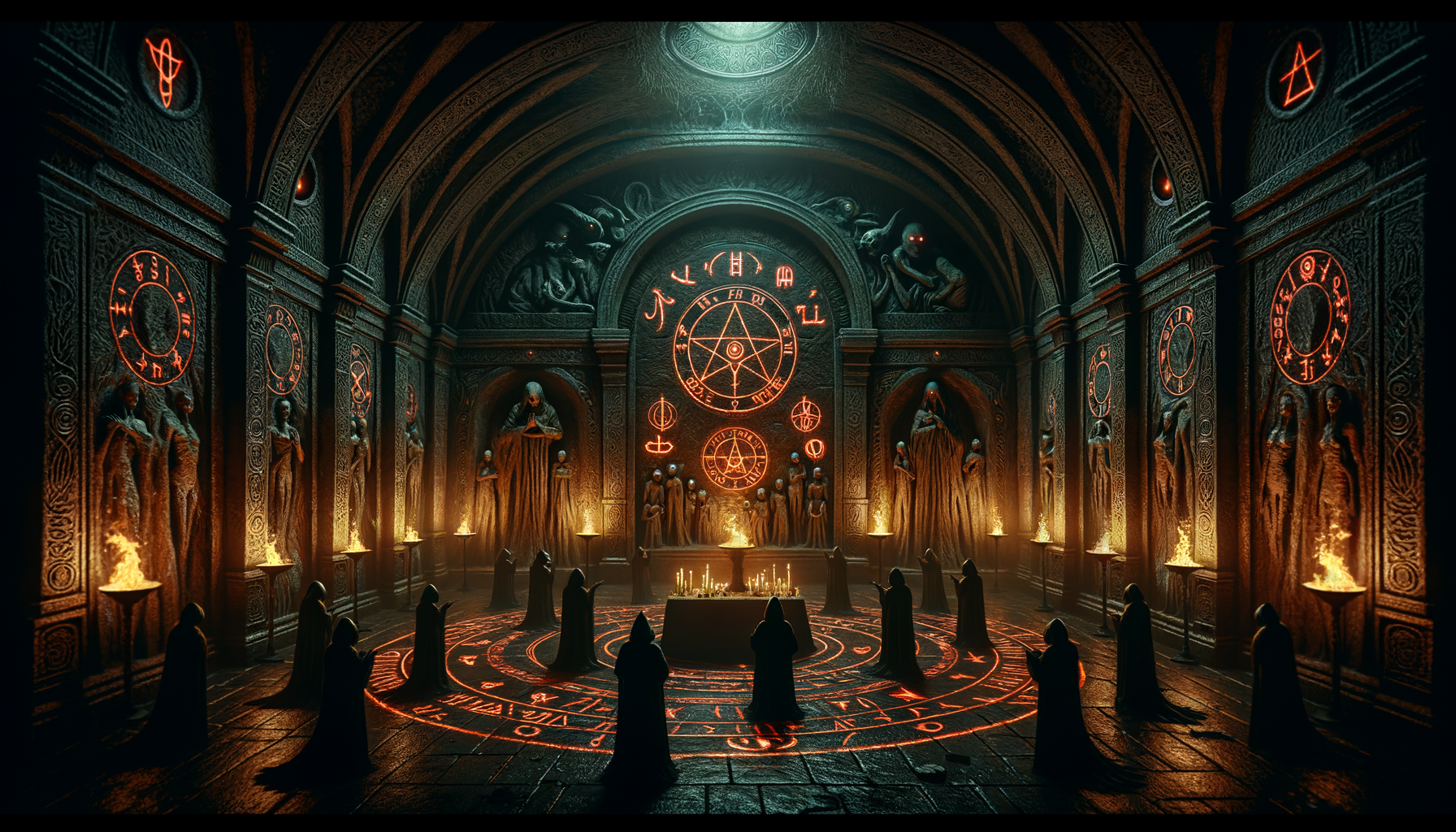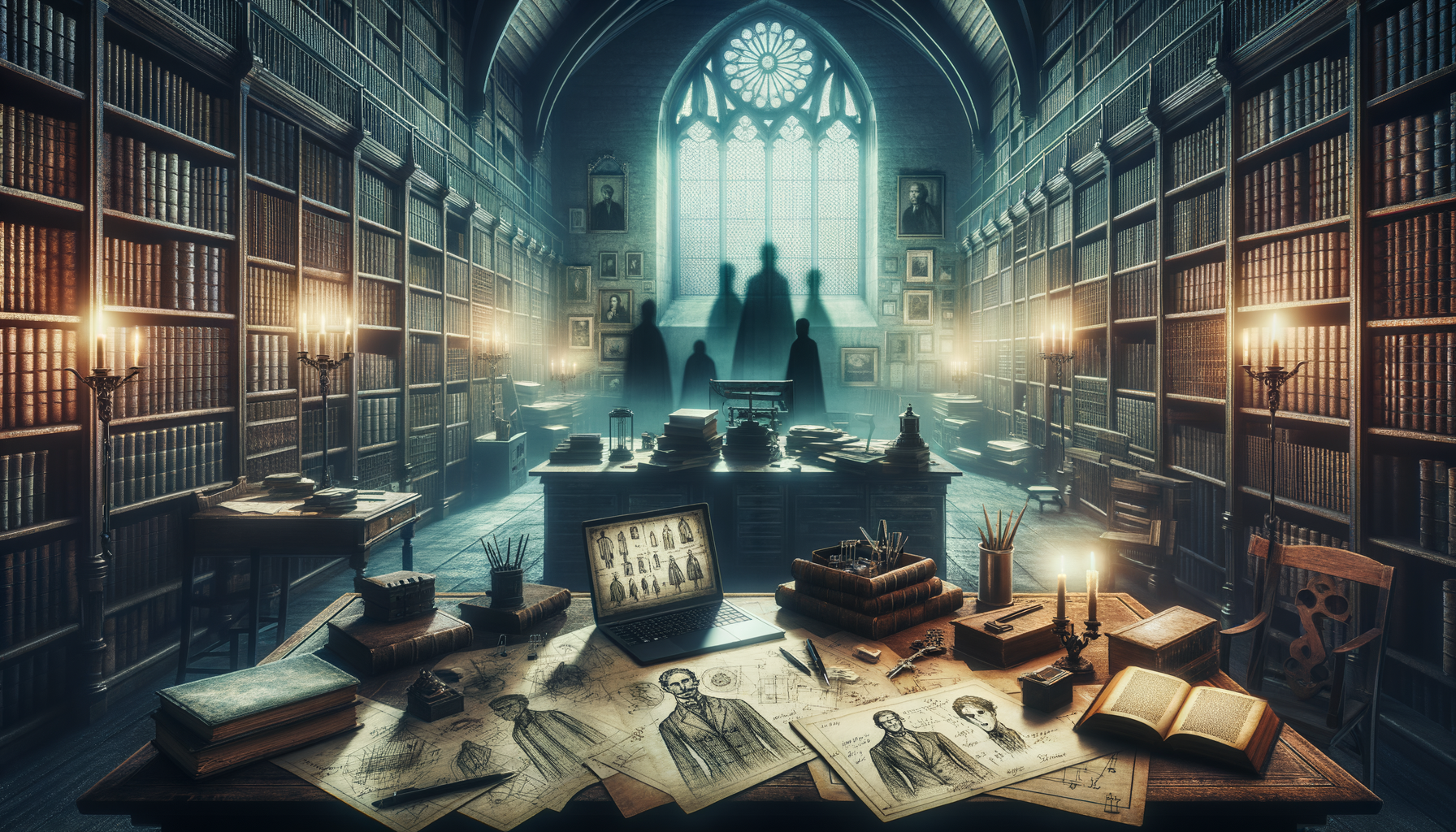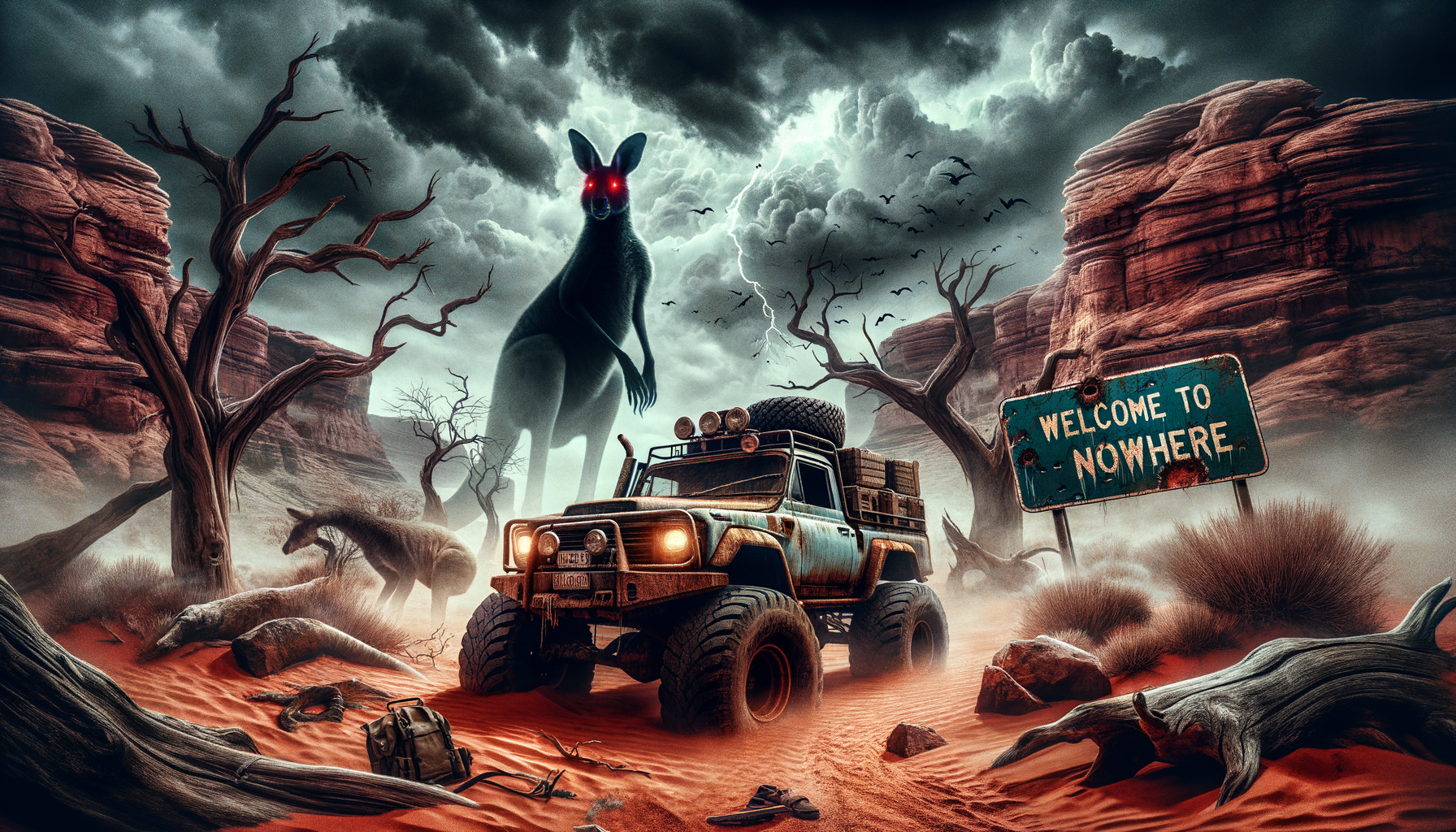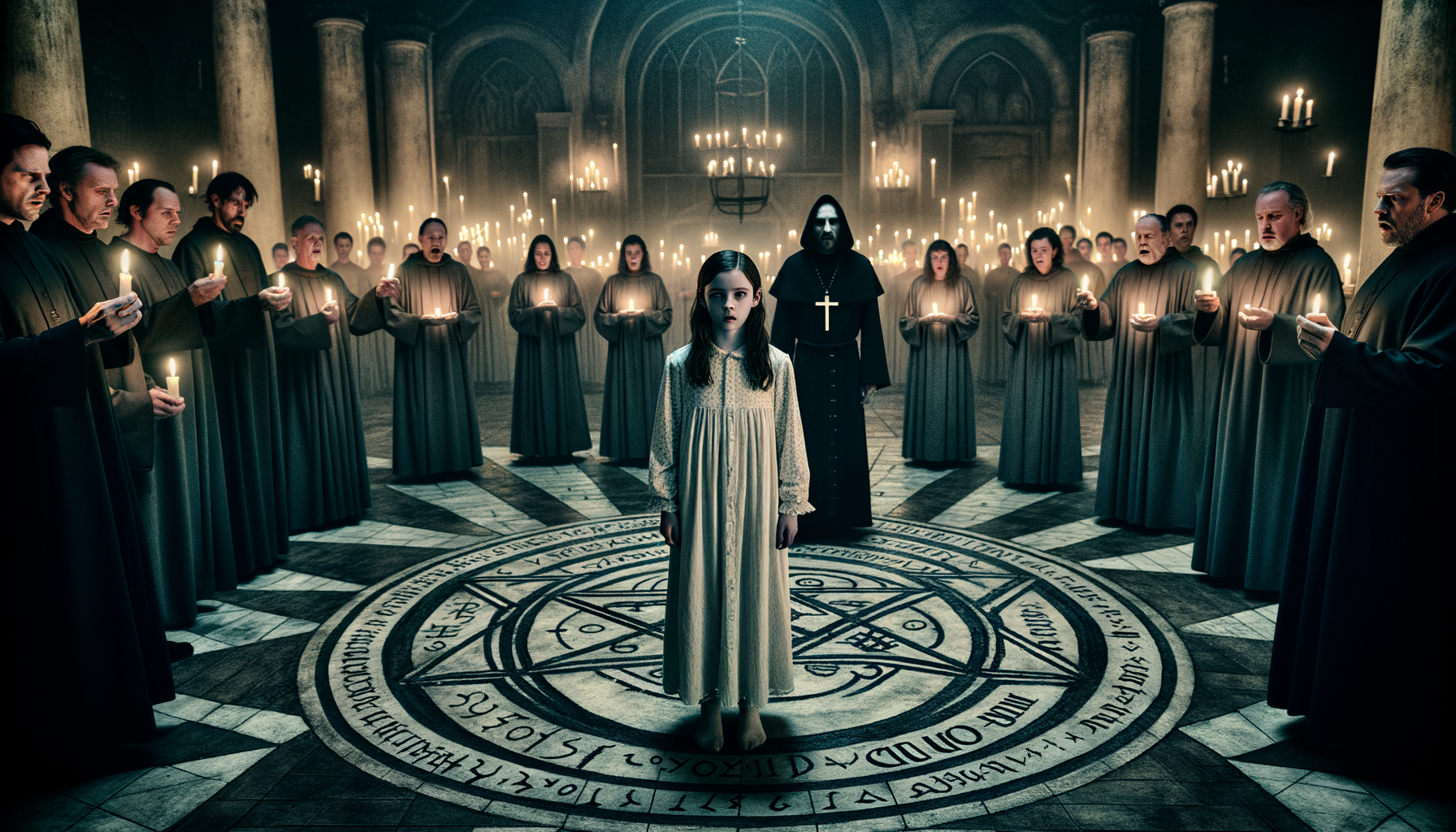Do you dare to step into the shadowy nexus of history and horror? Welcome to the sinister world of Nazi occult horror fiction, where the grotesque and supernatural collide with one of history’s darkest chapters. This subgenre has seen a chilling resurgence in 2024, merging historical figures with arcane rituals to create stories that both terrify and intrigue. Ever wondered what happens when real-life horrors meet ancient dark arts? Let’s dive deep into this spine-tingling realm and uncover what makes these books impossible to put down!
The Origins of Nazi Occult Horror Fiction
Historical Context
To understand the roots of Nazi occult horror fiction, we first need to delve into the historical fascination that the Nazis themselves had with the occult. The real-world foundation lies in the Nazi party’s obsession with mysticism, ancient artifacts, and secret societies. The Thule Society, an influential occult group, played a significant role in shaping Nazi ideology. Heinrich Himmler, one of the most powerful men in Nazi Germany, was particularly interested in esoteric and mystical subjects, which he believed held the key to Aryan supremacy.
Literary Beginnings
The combination of Nazi themes with supernatural elements began appearing in literature even before the end of World War II. Early works often explored the sinister side of the Nazi regime, blending it with dark rituals and occult practices. These stories offered a way to process the horrors of the war, adding a layer of supernatural fear to the already terrifying reality.
Influence of World War II
The aftermath of World War II provided fertile ground for writers to delve deeper into this subgenre. The sheer scale of the atrocities committed during the war and the enigmatic aspects of Nazi ideology inspired authors to explore what might lie beneath the surface. The blending of historical events with supernatural elements created a unique form of horror that resonated with readers looking to understand and process the collective trauma of the war.
Key Themes and Elements
Occult Practices and Mysticism
Recurring motifs in Nazi occult horror fiction include dark rituals, ancient artifacts, and secret societies. These elements serve to heighten the sense of dread and mystery, drawing readers into a world where the supernatural and the historical intersect. The use of mysticism and occult practices often highlights the bizarre and terrifying lengths to which the Nazis were willing to go in their quest for power.
Tangible and Intangible Horrors
Authors in this genre skillfully blend historical atrocities with supernatural fears, creating a dual layer of horror. The tangible horrors of concentration camps, medical experiments, and wartime brutality are interwoven with intangible fears such as curses, demonic possessions, and haunted relics. This blend makes the stories both deeply unsettling and compelling.
Alternate Histories
Another fascinating aspect of Nazi occult horror fiction is the reimagining of historical events with an occult twist. What if the Nazis had succeeded in harnessing supernatural powers? What if ancient artifacts held the key to world domination? These alternate histories provide a rich canvas for exploring the ‘what ifs’ of history, adding an extra dimension of intrigue and horror.
Influential Books and Authors
Pioneering Works
Significant early books like “The Spear of Destiny” by Trevor Ravenscroft and “The Morning of the Magicians” by Louis Pauwels and Jacques Bergier played a crucial role in shaping the genre. These works combined historical facts with speculative fiction, setting the stage for future explorations of Nazi occult themes.
Notable Authors
In 2024, contemporary writers such as Sarah Langan, T. Kingfisher, and Silvia Moreno-Garcia are leading the revival of Nazi occult horror fiction. Their works blend historical accuracy with imaginative horror, captivating a new generation of readers.
Critically Acclaimed Titles
For those looking to dive into the genre, must-read novels include “The Keep” by F. Paul Wilson, “Fatherland” by Robert Harris, and “The Devil Aspect” by Craig Russell. These books epitomize the best of Nazi occult horror fiction, offering gripping stories that are both terrifying and thought-provoking.
The Appeal of Nazi Occult Horror Fiction
Psychological Thrills
Readers are drawn to Nazi occult horror fiction for its intense and unsettling themes. The psychological thrills come from the blending of real historical horrors with supernatural elements, creating a sense of unease that lingers long after the book is closed.
Historical Intrigue
The genre also taps into a fascination with historical ‘what ifs’ and the uncovering of hidden truths. These stories invite readers to explore alternate realities and secret histories, offering a fresh perspective on well-known events.
Cultural Reflection
Nazi occult horror fiction reflects societal fears and historical curiosity. The stories often serve as a mirror, showing us the darkest aspects of human nature and the terrifying possibilities of unchecked power.
The Future of the Genre
Emerging Trends
As we look to the future, we can expect the genre to evolve in exciting ways. Emerging trends include deeper explorations of lesser-known historical events and the blending of Nazi occult themes with other genres such as science fiction and fantasy.
Cross-Media Expansions
The genre is also expanding beyond books, with adaptations in movies, series, and video games. These cross-media expansions bring Nazi occult horror to a broader audience, offering new ways to experience these chilling tales.
Reader and Critic Reception
Contemporary reception of Nazi occult horror fiction is generally positive, with both readers and critics appreciating the unique blend of history and horror. As the genre continues to evolve, it will be interesting to see how it is received by future audiences and what new directions it will take.
Conclusion
Nazi occult horror fiction of 2024 captures the imagination as it dances on the edge of reality and the supernatural. It’s a genre that not only entertains but also forces us to reflect on the very real horrors of history. Ready to dive deeper into these dark tales? Share your thoughts on your favorite books and recommend new ones for others to explore. Happy reading, and remember, the darkest stories often have the brightest revelations!




